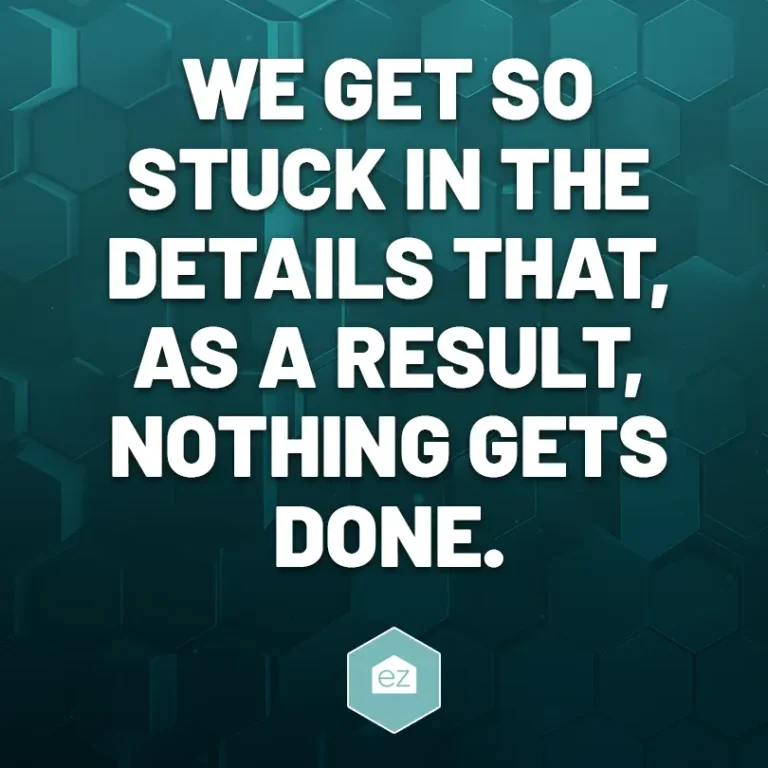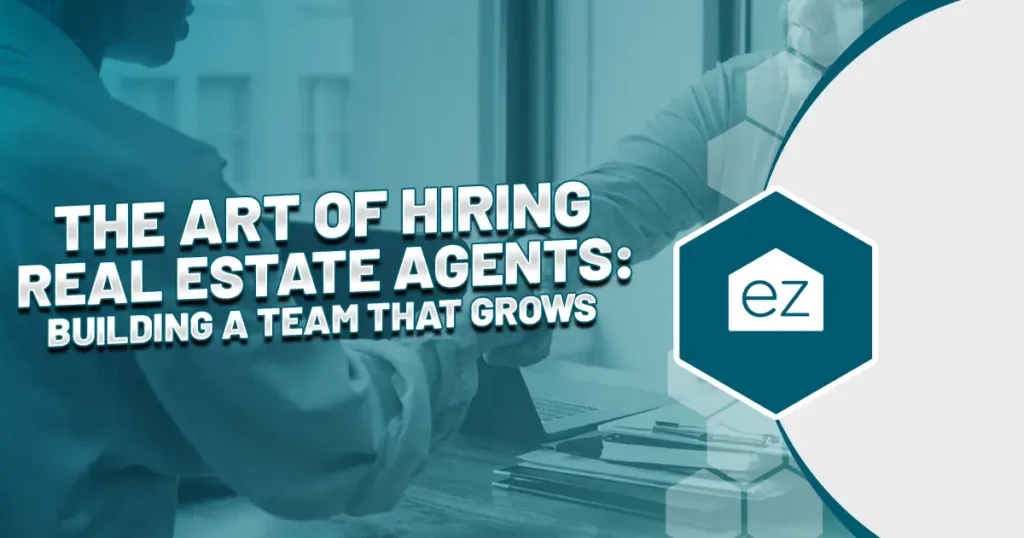Why Perfection Squashes Your Real Estate Businesses
In a world where achieving perfection seems the gold standard, it’s time to write a new narrative. Pursuing perfection in your real estate business may result in more drawbacks than benefits. Our experience has found that waiting until things are “perfect” is really a way of throwing up roadblocks and making excuses. Here’s why you need to ditch perfection and reframe your mindset.
The Downside of Perfectionism

Research has repeatedly pointed to the detrimental effects of perfectionism. Case in point, a study reviewed in Personality and Social Psychology found that chasing perfectionism in the workplace led to worse results.
Why would trying to get a business decision absolutely right make things worse?
Perfectionism causes a more rigid and fear-based approach to work. The company culture becomes one where mistakes aren’t allowed in the belief that anything not done perfectly will harm an individual or team’s reputation.
If you’ve ever heard the term “analysis paralysis,” perfectionism is probably a contributing factor. We get so stuck in the details that, as a result, nothing gets done. The anxiety of not meeting exceedingly high standards renders individuals and teams incapable of making pivotal business decisions or moves.
The irony is rich; teams inadvertently undermine productivity by setting impossibly high standards.
So, perfectionist attitudes in business are at odds with nurturing a team culture of creativity and personal accountability. On a personal level, trying to be always perfect risks leading to high anxiety, burnout, and stifling creative energies. That’s not ideal for our mental or emotional health.
Busting Through Perfection to Boost Productivity
The simple truth is that perfection is an unattainable standard. Constantly pursuing it only slows a project’s progress. Instead, we should strive for the Japanese idea of “wabi-sabi”—the art of recognizing beauty in imperfection.
So, how do we push past this belief that something must be perfect before we act?
Accept That The Time is Now
Keri Shull, founder of a real estate team, reminds us there’s never a perfect time in business or life. “If you wait for a perfect time, you’re never going to do anything. There’s never a perfect time to have children, there’s never a perfect time to start a business, there’s never a perfect time to build a team.”
In other words, make time to start working towards your goal.
There is No One Right Way
Recognize that one person’s approach to a real estate business doesn’t have to be another’s.
“There isn’t a one-size-fits-all all,” said Matt Smith, President & CEO of Matt Smith Group. “Everybody does it differently. I think [in] trying to find that exact right fit, a lot of people get stuck there. They want it to be perfect.”
While there are best practices, if you talk to successful real estate colleagues, you’ll find that they have adapted these best practices to work for them. That goes from how they structure their daily tasks to how they approach lead generation.
Pursue Excellence
The study on perfectionism suggests aiming for “excellence,” not perfection. The rationale is straightforward: perfectionism traps you with unreasonably high standards, whereas “excellence” encourages setting achievable goals. It opens the door to committing to achievement yet is flexible. It permits a person to move on once they’ve achieved their goals.
Real estate entrepreneur Joshua Smith knows firsthand why “excellence” works better for real estate than chasing perfection. In the Reside Podcast, he noted, “There’s never an area or a time where we don’t need improvement. It’s just an ongoing thing.” Our systems and processes must constantly be refined to stay optimized.
Think Agile
The Agile methodology originated in software development. It’s an approach to project management that emphasizes flexibility, collaboration, and customer satisfaction.
At its core, Agile focuses on delivering value through ongoing development that runs through several cycles. A project is divided into small, manageable units known as sprints. Teams work in sprints to produce tangible results quickly, allowing for rapid adjustments based on customer feedback and changing requirements.
Agile promotes a culture of continuous improvement and adaptability. Teams take action to get a project out there, knowing and accepting that the product may be flawed when launched. It believes you can keep learning from the launched product and improving it while it’s already in use. What’s more important is learning and pivoting rather than having a rigid plan.
Real estate teams can use the agile method to stop “analysis paralysis” and respond more to market dynamics. It also opens the door to streamlining operations for better efficiency and outcomes. Agile supports “excellence” by encouraging goal-setting, reflection, and system tweaking.
Encourage risk-taking
One problem with perfectionism is that it creates a team culture based on fear rather than innovation. Nurturing this kind of workplace requires making people feel comfortable making mistakes. As Laurie Reader, founder of the Laurie Finkelstein Reader Team, shared, you can easily do that from day one.
“I say to every new employee, ‘Look, I’m really excited about our journey together. It’s not going to be perfect, and I’m giving you permission right now to barrel forward, knowing you’re going to fail at certain points. But don’t wait to get it perfect for us to move forward,'” Reader said. “That’s why everyone gets stuck; they’re so afraid they’ll just mess it up.”
If you don’t permit people to fail, they’ll slow down. In fast-paced real estate, that holds you back from closing the deal and finding success.
Don’t Let Perfection Hold You Back
Perfection is a mirage. Waiting for the perfect moment to take action is tantamount to idleness. Instead, we must practice being comfortable with “good enough.” Set high but reachable standards and cultivate a culture that values progress over perfection. Thrive with flexibility and resilience, not by waiting for things to be just right.
Start Your Home Search
Preston Guyton
Share this Post
Related Articles
Real Estate Tips
How to Communicate Your Value As A Real Estate Agent
Real Estate Tips
10 Essential Steps to Hiring a Contractor
Real Estate Tips
What Does a Growth Mindset Look Like?
Real Estate Tips





